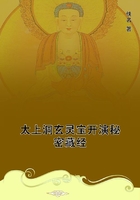On the other hand, James hated the Puritans with more than the hatred of Elizabeth. Her aversion to them was political; his was personal. The sect had plagued him in Scotland, where he was weak; and he was determined to be even with them in England, where he was powerful. Persecution gradually changed a sect into a faction. That there was anything in the religious opinions of the Puritans which rendered them hostile to monarchy has never been proved to our satisfaction. After our civil contests, it became the fashion to say that Presbyterianism was connected with Republicanism; just as it has been the fashion to say, since the time of the French Revolution, that Infidelity is connected with Republicanism. It is perfectly true that a church constituted on the Calvinistic model will not strengthen the hands of the sovereign so much as a hierarchy which consists of several ranks, differing in dignity and emolument, and of which all the members are constantly looking to the Government for promotion. But experience has clearly shown that a Calvinistic church, like every other church, is disaffected when it is persecuted, quiet when it is tolerated, and actively loyal when it is favoured and cherished. Scotland has had a Presbyterian establishment during a century and a half. Yet her General Assembly has not, during that period, given half so much trouble to the government as the Convocation of the Church of England gave during the thirty years which followed the Revolution. That James and Charles should have been mistaken in this point is not surprising. But we are astonished, we must confess, that men of our own time, men who have before them the proof of what toleration can effect, men who may see with their own eyes that the Presbyterians are no such monsters when government is wise enough to let them alone, should defend the persecutions of the sixteenth and seventeenth centuries as indispensable to the safety of the church and the throne.
How persecution protects churches and thrones was soon made manifest. A systematic political opposition, vehement, daring, and inflexible, sprang from a schism about trifles, altogether unconnected with the real interests of religion or of the state.
Before the close of the reign of Elizabeth this opposition began to show itself. It broke forth on the question of the monopolies.
Even the imperial Lioness was compelled to abandon her prey, and slowly and fiercely to recede before the assailants. The spirit of liberty grew with the growing wealth and intelligence of the people. The feeble struggles and insults of James irritated instead of suppressing it; and the events which immediately followed the accession of his son portended a contest of no common severity, between a king resolved to be absolute, and a people resolved to be free.
The famous proceedings of the third Parliament of Charles, and the tyrannical measures which followed its dissolution, are extremely well described by Mr. Hallam. No writer, we think, has shown, in so clear and satisfactory a manner, that the Government then entertained a fixed purpose of destroying the old parliamentary constitution of England, or at least of reducing it to a mere shadow. We hasten, however, to a part of his work which, though it abounds in valuable information and in remarks well deserving to be attentively considered, and though it is, like the rest, evidently written in a spirit of perfect impartiality, appears to us, in many points, objectionable.
We pass to the year 1640. The fate of the short Parliament held in that year clearly indicated the views of the king. That a Parliament so moderate in feeling should have met after so many years of oppression is truly wonderful. Hyde extols its loyal and conciliatory spirit. Its conduct, we are told, made the excellent Falkland in love with the very name of Parliament. We think, indeed, with Oliver St. John, that its moderation was carried too far, and that the times required sharper and more decided councils. It was fortunate, however, that the king had another opportunity of showing that hatred of the liberties of his subjects which was the ruling principle of all his conduct. The sole crime of the Commons was that, meeting after a long intermission of parliaments, and after a long series of cruelties and illegal imposts, they seemed inclined to examine grievances before they would vote supplies. For this insolence they were dissolved almost as soon as they met.
Defeat, universal agitation, financial embarrassments, disorganisation in every part of the government, compelled Charles again to convene the Houses before the close of the same year. Their meeting was one of the great eras in the history of the civilised world. Whatever of political freedom exists either in Europe or in America has sprung, directly or indirectly, from those institutions which they secured and reformed. We never turn to the annals of those times without feeling increased admiration of the patriotism, the energy, the decision, the consummate wisdom, which marked the measures of that great Parliament, from the day on which it met to the commencement of civil hostilities.
The impeachment of Strafford was the first, and perhaps the greatest blow. The whole conduct of that celebrated man proved that he had formed a deliberate scheme to subvert the fundamental laws of England. Those parts of his correspondence which have been brought to light since his death, place the matter beyond a doubt. One of his admirers has, indeed, offered to show "that the passages which Mr. Hallam has invidiously extracted from the correspondence between Laud and Strafford, as proving their design to introduce a thorough tyranny, refer not to any such design, but to a thorough reform in the affairs of state, and the thorough maintenance of just authority." We will recommend two or three of these passages to the especial notice of our readers.















